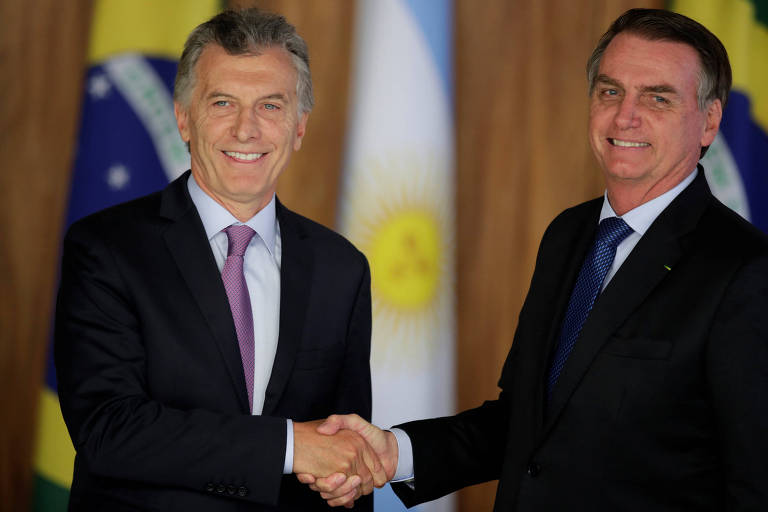With support from Argentina, Uruguay and Paraguay, the Bolsonaro administration intends to depoliticize Mercosul and greatly reduce tariffs within the South American trade bloc.
Bolsonaro and Argentina's president Mauricio Macri hinted at their intentions when they spoke about a leaner Mercosul and revised the Common External Tariff (TEC, a unified tariff for products imported outside the bloc), during a meeting in Brasília.
According to staffers at the Ministry of Economy, a "leaner Mercosul" means focusing on making trade among the member countries more efficient, with fewer exceptions and less political issues.
For example, it shouldn't be a Mercosul priority to get involved in issues such as the crisis in the Middle East. Venezuela is an important issue, but the country doesn't belong to Mercosul.
A common currency is also out of the question.
Efforts will be concentrated in negotiating trade deals and cutting tariffs. TEC's revision should happen in two parallel fronts.
The first is a reorganization, which will happen by a generalized cut in rates, to make Mercosul economies more competitive and return to a rationale where commodities should pay fewer tariffs than finished products.
For Bolsonaro's economic team, no developing nation made it to the group of rich countries without boosting international trade.
The second front will be to discuss reducing tariffs in four industries: steel, petrochemicals, capital goods and technology and telecommunications goods.
Some business leaders, however, say they are wary of the Bolsonaro's economic team "ravenous appetite," as they put it.
Translated by NATASHA MADOV
Read the article in the original language
